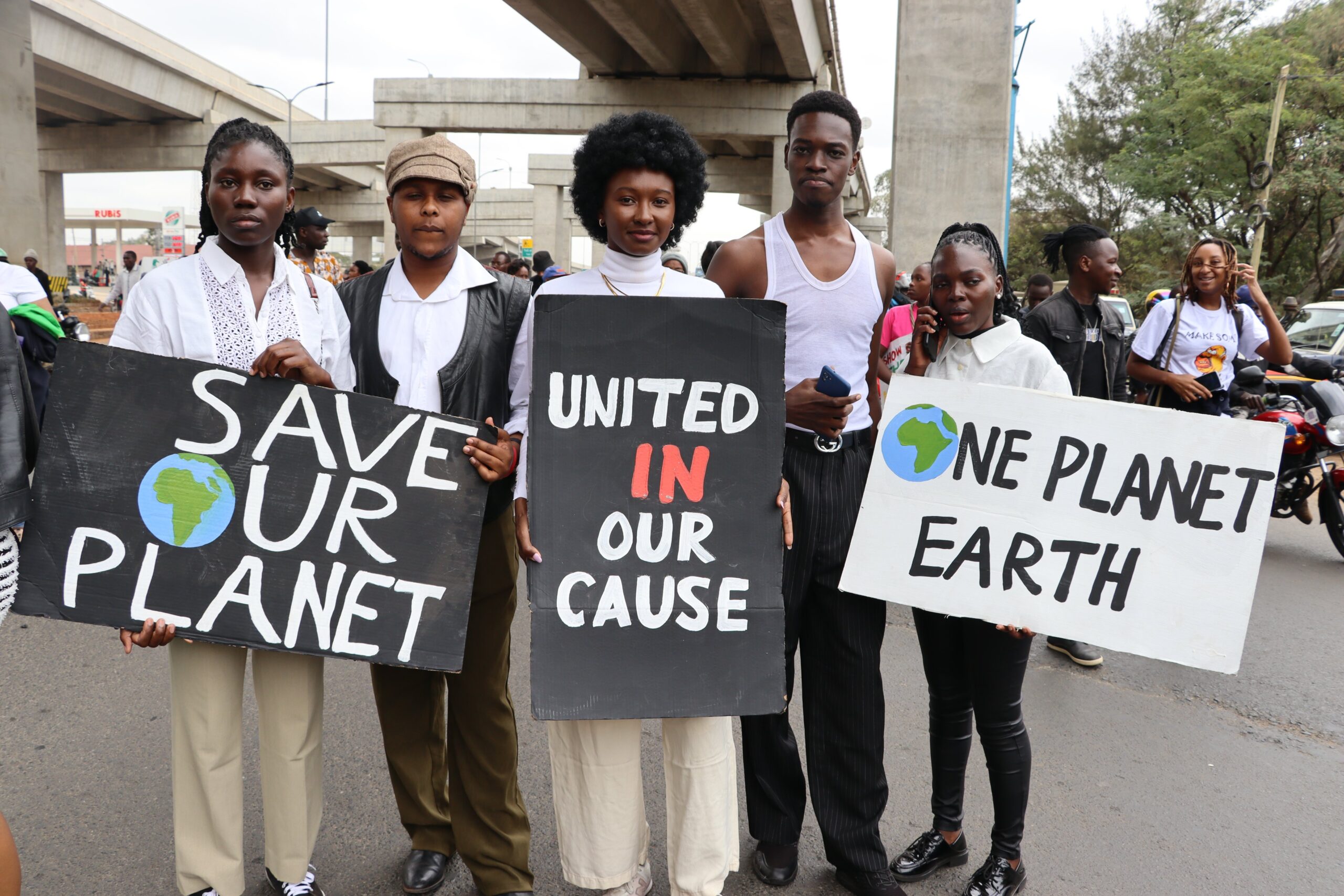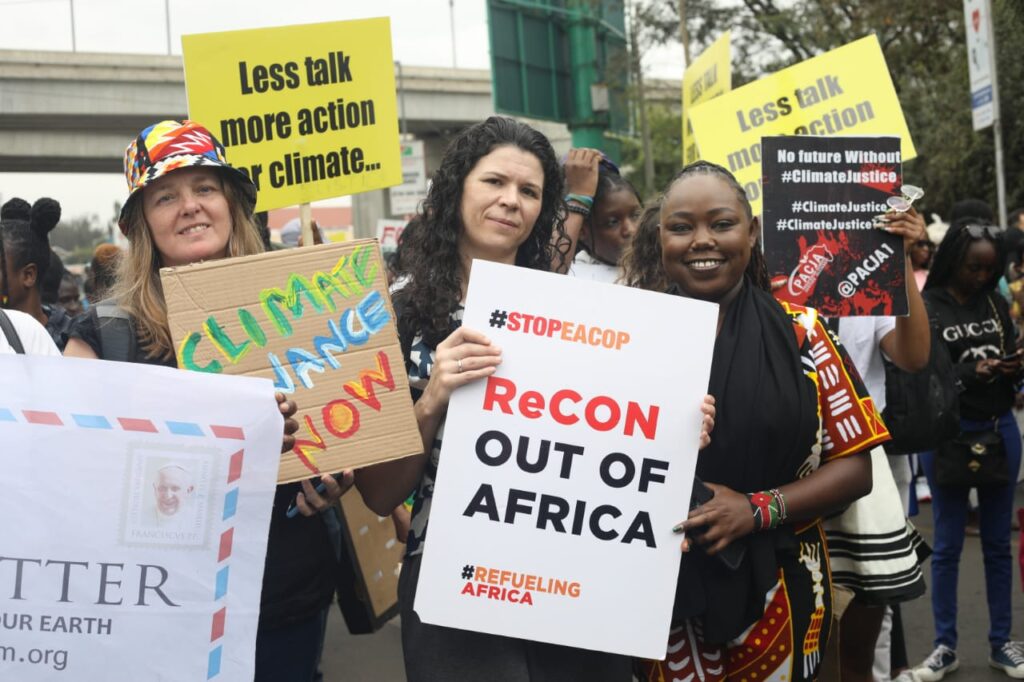African Climate Summit and People's March Highlight Urgency of Climate Justice for Marginalized Communities
As the first African Climate Summit kicked off in Nairobi on September 4th, hundreds of people took to the streets in the Kenyan capital to participate in a ‘people’s march’ on climate. The demonstrators, accompanied by a vibrant marching band, gathered near the conference venue to voice their concerns about what they perceive as a “deeply compromised agenda” at the summit, which they believe prioritizes the interests of rich nations over those of the African continent.
The African Activists for Climate Justice (AACJ), in collaboration with Natural Justice, joined the march as a powerful statement of unity and solidarity with marginalized communities across Africa. AACJ recognizes that climate justice is not merely a theoretical concept but a pressing reality for countless individuals and communities who disproportionately bear the brunt of climate change’s adverse effects. By actively participating in the march, AACJ underscores its commitment to addressing climate injustices head-on and advocating for equitable solutions that prioritize the most vulnerable populations, reflecting its belief that the urgent need for systemic change and meaningful action must take precedence over tokenistic approaches or market-based solutions that may not adequately address the root causes of climate changE
One of the primary frustrations voiced by activists in Africa is the expectation that the continent should adopt cleaner development practices while much of the support promised to aid in this transition has not materialized. This disconnect has fueled discontent among African climate advocates who believe that the burden of addressing climate change should be more equitably shared.
One of the key issues raised during the march and the summit is the role of carbon markets. These trading systems, defined by the United Nations as a way for companies or individuals to offset their greenhouse gas emissions by purchasing carbon credits, have been criticized for not addressing the root causes of climate change. Activists argue that true climate justice requires systemic change, not just financial transactions, and that Africa’s energy systems should be de-colonized and placed in the hands of its people.
Additionally, activists at the summit called for a reduction in reliance on fossil fuels and criticized what they referred to as a “neo-colonial scramble for oil and gas in Africa.” They emphasized the urgent need to transition to cleaner, more sustainable energy sources to mitigate the impacts of climate change.
The first-ever African Climate Summit is a significant platform for addressing these pressing issues. African leaders and activists are determined to assert a stronger voice on the global stage, demanding increased financing and support to address the climate crisis. They are also pushing for the delivery of the $100 billion in climate finance annually pledged by wealthy countries to support developing nations—a commitment that has fallen short in recent years.
The importance of climate justice for marginalized communities in Africa is paramount. With a rapidly changing climate that poses existential threats to livelihoods and ecosystems, there is an urgent need for equitable solutions that prioritize the most vulnerable. The African Activists for Climate Justice Project, along with the voices raised during the people’s march and the African Climate Summit, remind the world that climate justice is not just a concept but a fundamental necessity for the well-being of Africa and the planet as a whole. It is a call to action that demands global cooperation and solidarity to ensure a sustainable and just future for all



